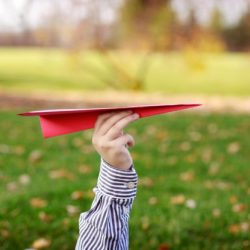SingaporeMotherhood | Preschooler & Up
December 2012
How To Sail Through The First Weeks of Primary 1

There are only a few weeks left before The Big Day — the first day of school. Uniforms have been bought, washed and ironed. Textbooks have been dressed in plastic covers. After much anticipation, the new school year is almost here.
For parents whose first child is entering Primary School, a whole new world awaits. Things
have changed since we ourselves were in Primary 1, hence it is only natural for us to be curious with what is expected out of our little ones this time around.
[banner][/banner]
What Your Child Can Do For Herself
Schools expect Primary 1 pupils to be able to:
- feed themselves
- decide what to buy for recess
- clean themselves
- dress themselves
- pack their schoolbag
- copy from the board
- write and recognise their own name
- give a parent’s contact number
- walk to the classroom on their own
- habitually inform parents of all messages from school
- count money
- take care of their own things
When children start to play they tend to forget their water bottle, wallet, lunch box, even
removable parts of their uniforms like the pinafore and belt. Teaching them responsibility includes not bringing toys and expensive items to school, not using mobile phones during curriculum time, and returning eating utensils to the collection point after meals.
However, as CHIJ St. Nicholas Primary School Principal Mrs. Tan Wai Lan, in her address during the P1 Orientation this year explained, it is all right to let our children make mistakes. If your child forgets to pack her bag properly once and she is reprimanded for it, she will be extra careful when packing her bag from then on.
Some parents of girls especially, are concerned about how their daughters may adapt to school toilets. You may want to teach your child to wipe the seat before sitting on it, how to clean herself, and of course, to wash her hands with soap afterwards. This is an important life skill, both for her health and independence.
What We Can Do For Our Child
As parents, we can do the following:
- Create a checklist of the things to bring and wear
- Provide the necessary books for silent reading time
- Label all items including school shoes
- Ensure your child knows where to meet you, or knows how to get to the school bus
To help alleviate first day jitters, let your child know what her schedule will be like.
Point out positive aspects of starting school, and to reassure her that if she encounters any problem, her teachers will be there to help.
If you attended the P1 orientation session at your child’s school, you will have been informed about the school’s expectations when it comes to your child’s knowledge of English, Mother Tongue and Maths.
Generally, as long as your child can read what the teacher has written on the whiteboard and is able to write it down herself, she has met the expected English standard.
Mother Tongue standards, however, vary. For example, a SAP (Special Assistance Plan) Primary School such as CHIJ St. Nicholas uses English during odd weeks and Chinese in even weeks. In the school’s earlier days, using the wrong language during the wrong week would result in a five-cent fine!
Children taking Mandarin as a second language will also be learning hanyu pinyin. Some parents enroll their children in hanyu pinyin classes during the school holidays between K2 and P1.
For Maths, this is what a P1 student will be learning:
Term 1
Numbers 0 to 10
Number Bonds
Addition Within 10
Subtraction Within 10
Shapes And Patterns
Ordinal Numbers
Term 2
Numbers to 20
Addition And Subtraction Within 20
Length
Mass
Picture Graphs
Term 3
Numbers to 40
Multiplication
Division
Time
Numbers to 100
Term 4
Money (1)
Money (2)
Beyond Academics
Beyond letter-and-number matters, do pay attention to your child’s well-being. Try “proactive communication”. When talking about life in school, for instance, do not settle for monosyllabic answers. Probe deeper with open-ended questions. And never compare your child’s results with her peers or siblings; it is the learning process and effort put in that is more important.
Helping The Teachers
In her entry for Teaching is Heartwork – a National Institute of Education publication – Mrs. Pamela Zheng, who has taught for over three years, shares that in addition to her hectic schedule, she has to worry about Meet-the-Parents sessions.
Some parents tell the teacher to work harder and bear responsibility for their child’s bad grades. Others blame the teacher for various reasons, while few thank the teacher at the end of a school year. She points out, “All I needed was a word of praise or encouragement to carry on”.
One important thing to remember is not to badmouth your child’s teachers at home. When this happens, the child learns, from her parents, to disrespect the teacher. Teachers are the pupils’ second parents, maintaining their respectable position in your child’s eye benefits you as well.
What We Can Do For Ourselves
A school principal recalls seeing parents who stood and cried outside the gate after bringing their children to school on the first day. “Parents need to learn to let go,” she says.
So don’t worry too much. Your child will have a buddy from an upper primary level to help him or her adjust to school life. You can probably watch your child from the canteen over the first two days. Then, just let go. Your child will be fine.
All content from this article, including images, cannot be reproduced without credits or written permission from SingaporeMotherhood.
Follow us on Facebook, Instagram, and Telegram for the latest article and promotion updates.






